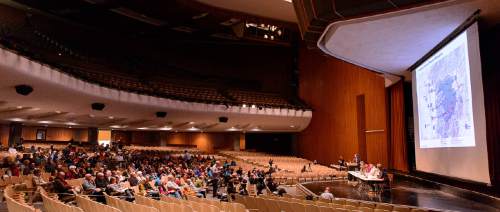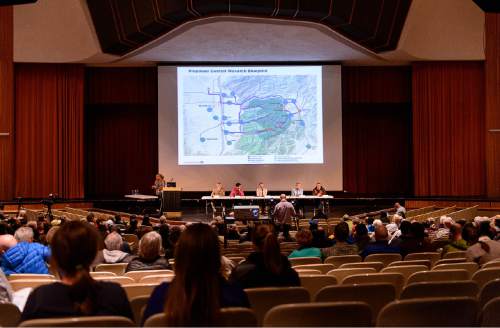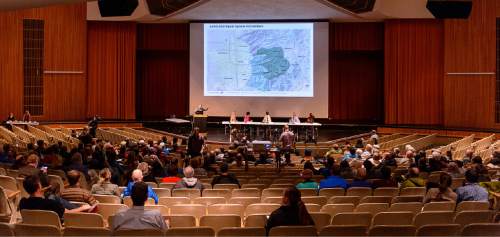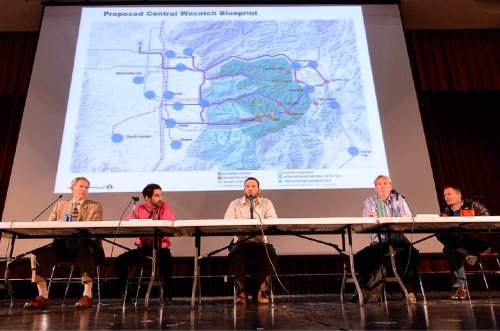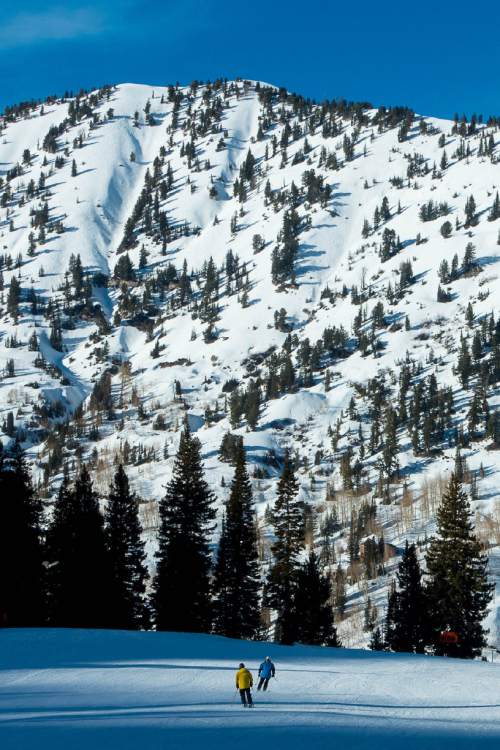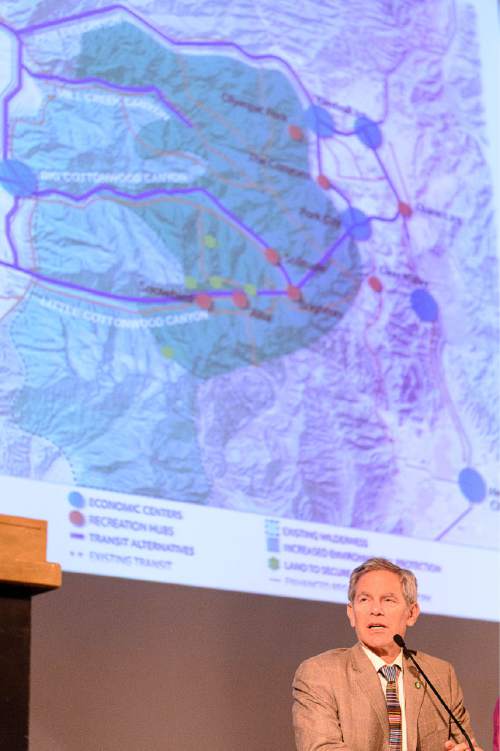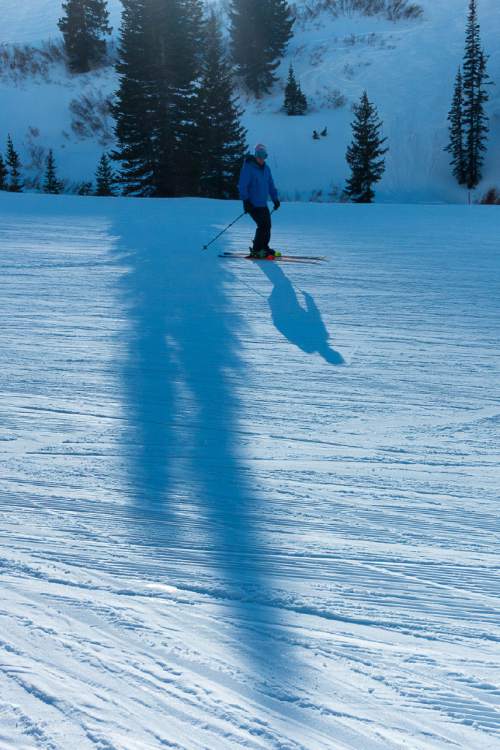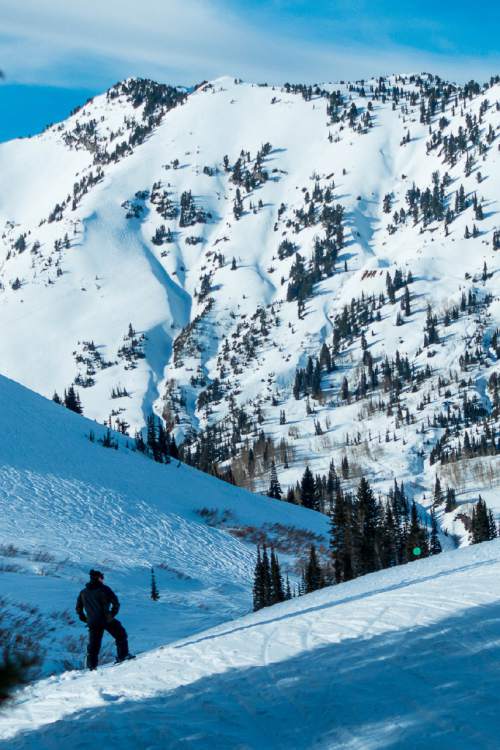This is an archived article that was published on sltrib.com in 2015, and information in the article may be outdated. It is provided only for personal research purposes and may not be reprinted.
Murray • "So why are you here?"
Mountain Accord coordinator Laynee Jones kicked off a 90-minute question-and-answer meeting on her group's proposed "blueprint" for the central Wasatch Mountains far into the future by turning the question on the audience.
She walked into the crowd of perhaps 200 in the spacious Cottonwood High School auditorium and approached a middle-age man who responded "I've been skiing in these hills since 1962 … and it's the best skiing in the world. I would like to see everything done to preserve that."
The next man said he was interested in a contemplated extension of a rail system to Park City. A third wanted to know more about a proposed regional trail system, especially when a section of trail crosses private land.
Jones wrapped up her survey with a woman who said "I love to hike and ski and I just want to see our mountains protected."
Five panelists who helped put together the Mountain Accord blueprint unveiled last week concurred Wednesday that the same goal motivated them to sit through more than a year of meetings, make compromises here and force concessions there, to come up with a still-evolving proposal worthy of more detailed evaluation.
"I see a combination of challenges but the opportunity to make generational decisions that will not only solve problems but also protect the qualities [of the canyons] we hold so dear," said Salt Lake City Mayor Ralph Becker.
Joining him on the panel were Dave Wittiekind, supervisor of the Uinta-Wasatch-Cache National Forest and Park City Councilman Andy Beerman, Carl Fisher from Save Our Canyons and Ski Utah President Nathan Rafferty, a representative mix of the disparate group of 20 government agencies, conservation groups, ski resorts and private property owners involved in Mountain Accord.
"I'm grateful that everyone has come to the table and stayed at the table," Becker added, despite "sometimes pretty intense disagreements about what happens in these mountains."
Fisher said he was willing to make compromises to accept the ski resorts' desire for marketable connections and some base-area development in return for the promise of assuring more extensive environmental protections for large swaths of the upper Wasatch Mountains.
"It's very rare for an environmental organization like Save Our Canyons or the community at large to be engaged at the front end before [federal environmental impact studies]," he said. "We usually have to respond to protect things after development. We can shape projects that go forward. … It's time to make sure everybody's voices are elevated."
This planning process also is taking the ski resorts to "uncharted territory," Ski Utah's Rafferty said, but they are willing to make significant territorial concessions in return for two things: assurances that there will be a quick, reliable transportation system providing access to and from the valleys, and some sort of resort-to-resort connections that are marketable, making Utah skiing unique in North America.
"We're closer and closer to some significant agreements that won't leave anyone at the table high-fiving anyone but will represent important agreements," he said.
By the end of the session, many queries remained unanswered about a range of topics — watershed protection, snowmaking, tunnels, rail lines, fast transit buses, automobiles in the canyons — not to mention how to pay for it all.
Jones said she hopes to receive 10,000 questions and comments before the Mountain Accord executive committee meets in April to begin finalizing a proposal that would be submitted to federal agencies for thorough environmental review.
Comments may be submitted online at mountainaccord.com. or at two more open houses planned on Mountain Accord. The first is Feb. 24 at the Eccles Center for the Performing Arts in Park City, the second Feb. 25 at Skyline High School in Millcreek. Both run from 6 to 8:30 p.m.
Twitter: @sltribmikeg


